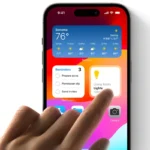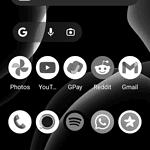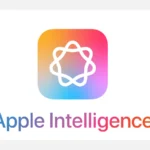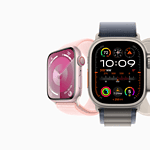Are you interested in the iPhone 11 and its compatibility with 5G networks? This article explains the iPhone 11’s capabilities, highlights its key features, and discusses the importance of 5G technology today. The iPhone 11 does not support 5G, but it is still a great choice for those who want a high-performing and affordable smartphone. The iPhone 11, released in 2019, operates on 4G LTE networks, providing fast data speeds for most applications. While it does not support 5G technology, for many people, the iPhone 11’s performance on current LTE networks will be sufficient for everyday use, as 4G LTE remains strong and widely available.
iPhone 11: A 4G Powerhouse in a 5G World
Is iPhone 11 5G Compatible?
The iPhone 11 does not support 5G connectivity. Apple introduced 5G capability in its later models, starting with the iPhone 12 series.
iPhone 11 Tech Specs
While the iPhone 11 lacks 5G, it boasts a robust set of features:
| Feature | Specification |
|---|---|
| Display | 6.1-inch Liquid Retina HD LCD |
| Chip | A13 Bionic chip |
| Cameras | Dual 12MP Ultra Wide and Wide cameras |
| Video Recording | 4K video up to 60fps |
| Battery Life | Up to 17 hours of video playback |
| Other Features | Face ID, Water and dust resistance, Wireless charging |
Why 5G Matters
5G technology offers significantly faster download and upload speeds, lower latency, and the ability to connect more devices simultaneously. This translates to quicker app launches, smoother streaming, and improved overall performance.
Should You Upgrade for 5G?
If 5G is a priority for you, consider upgrading to a newer iPhone model. However, if you’re satisfied with 4G speeds and the iPhone 11’s features, it remains a powerful and capable device for everyday use.
iPhone 11: Still a Great Choice
Despite not having 5G, the iPhone 11 still delivers a great user experience. Its powerful A13 Bionic chip, excellent cameras, and long battery life make it a popular choice for those seeking a reliable and affordable smartphone.
Key Takeaways
- The iPhone 11 is equipped for 4G LTE networks but not 5G
- Users needing the fastest network speeds will have to consider newer models
- Despite the lack of 5G, iPhone 11 provides adequate performance for daily tasks
Network Technology and Compatibility
When discussing the iPhone 11’s network capabilities, it is essential to consider the device’s support for various network technologies and compatibility with carriers.
Understanding 5G and LTE Networks
The iPhone 11 operates on LTE networks. This means it cannot connect to 5G networks. LTE stands for Long-Term Evolution, a standard for wireless broadband communication. 5G is the fifth generation of wireless network technology, offering faster speeds and lower latency than LTE.
Carrier and Network Support
Major carriers in the United States like Verizon, AT&T, T-Mobile, and Sprint provide LTE network services compatible with the iPhone 11. Each carrier has different coverage and network quality which may affect the iPhone’s performance. In other countries, local carriers support the iPhone 11’s LTE capabilities, ensuring connectivity across borders.
Global Network Variations
Different countries might use varied frequency bands or network standards, affecting how a device performs abroad. The iPhone 11’s LTE modem, made by Intel, is designed to work with numerous bands. This makes the phone quite versatile globally. However, it lacks modem technology from Qualcomm which would be necessary for 5G connectivity. The iPhone 11 supports physical SIM cards and eSIM, offering dual SIM functionality necessary for some users in regions like China and Armenia.
Device Specifications and Performance
When considering the iPhone 11 for its specifications and performance, it is essential to focus on its hardware and software integration. How it compares to other iPhone models and its battery life and data usage are also central to its overall effectiveness as a smartphone.
Hardware and Software Integration
The iPhone 11 runs on the Apple A13 Bionic chip, which brings together powerful processing capabilities and efficiency. This chipset is paired with 4 GB of RAM, enhancing the performance of the device. It operates on iOS, which receives regular updates from Apple to maintain security and introduce new features. These updates can improve speed and stability, adding to the phone’s longevity.
Comparison to Other iPhone Models
In comparison to its successors like the iPhone 12 and 13 which support 5G technology, the iPhone 11 does not provide 5G connectivity. It offers Gigabit-class LTE, which is still fast for downloading content but does not reach the speed capable with a 5G network. Unlike the iPhone 12 and newer models, the iPhone 11 does not have the hardware to connect to sub-6 or mmWave 5G networks.
Battery Life and Data Usage
The iPhone 11 is equipped with a 3110 mAh battery, providing all-day battery life under normal usage. Data usage speeds on the iPhone 11 are fast due to its LTE capabilities. While the device cannot utilize 5G data plans for faster downloads, its LTE technology is sufficient for most content and tasks. Users can enjoy media and apps without frequent charges or concerns about slow data speeds. However, technology enthusiasts who value the latest advancements may prefer the iPhone 12 or newer models for their 5G capabilities and the potential for better battery optimization.







